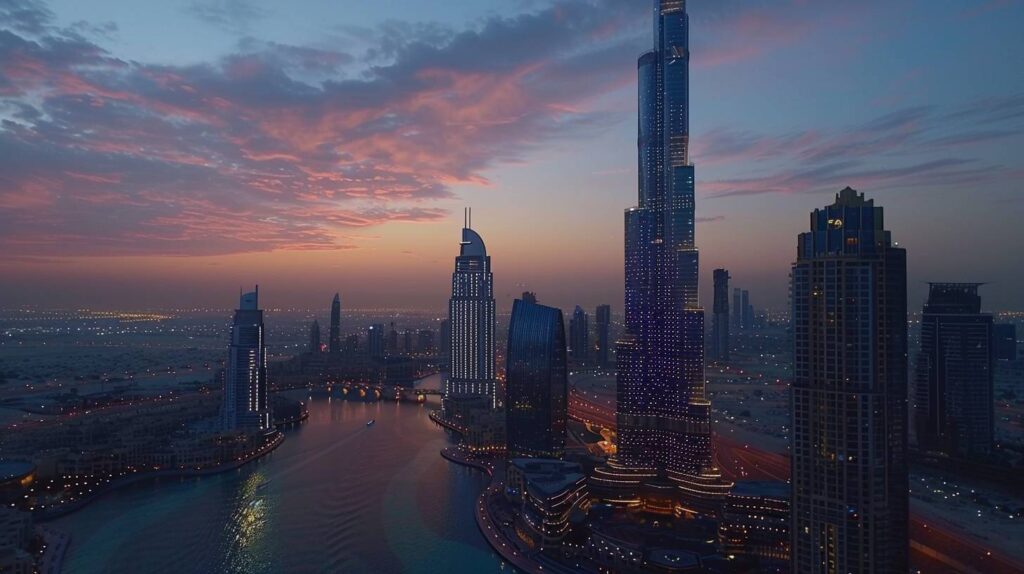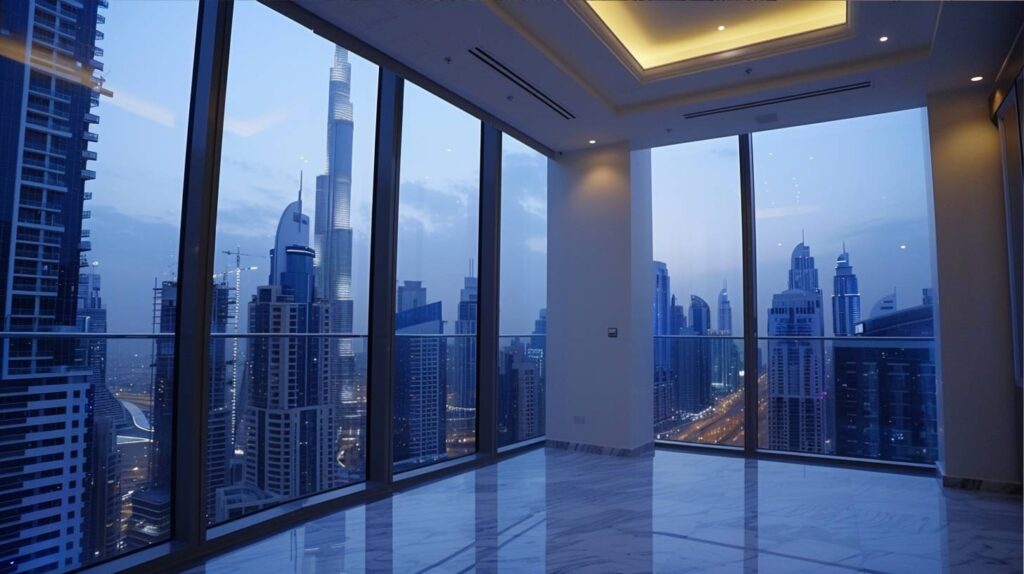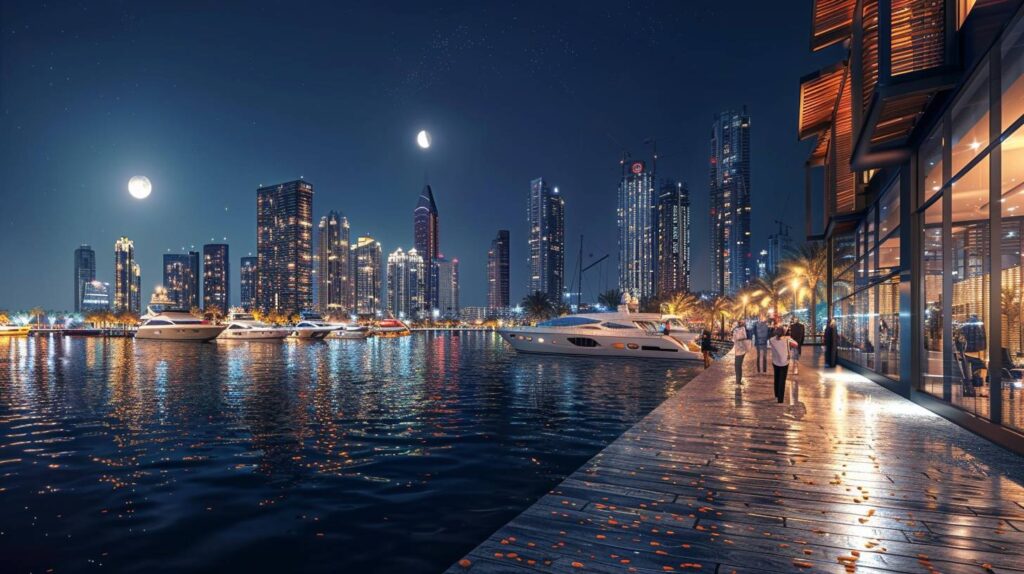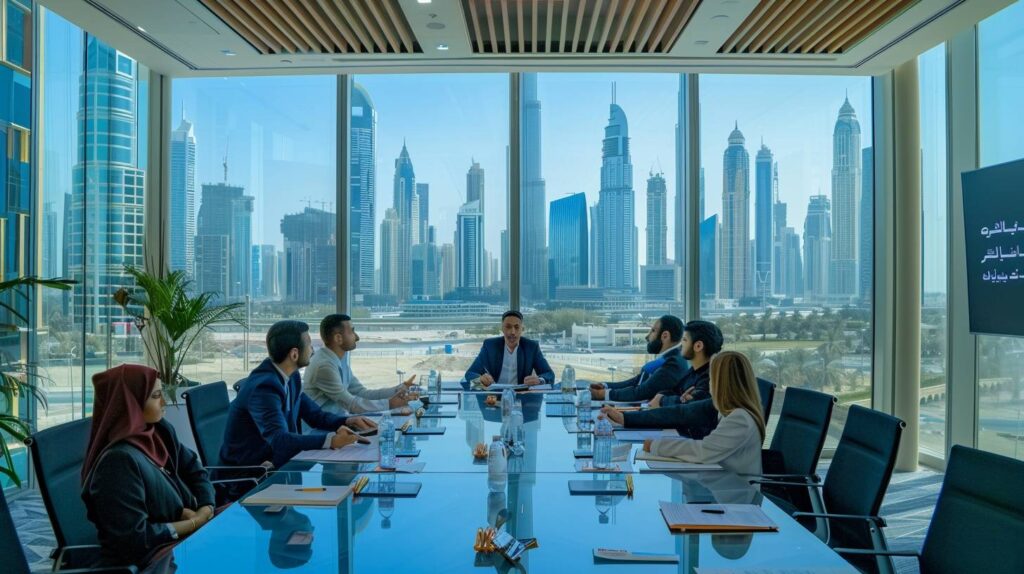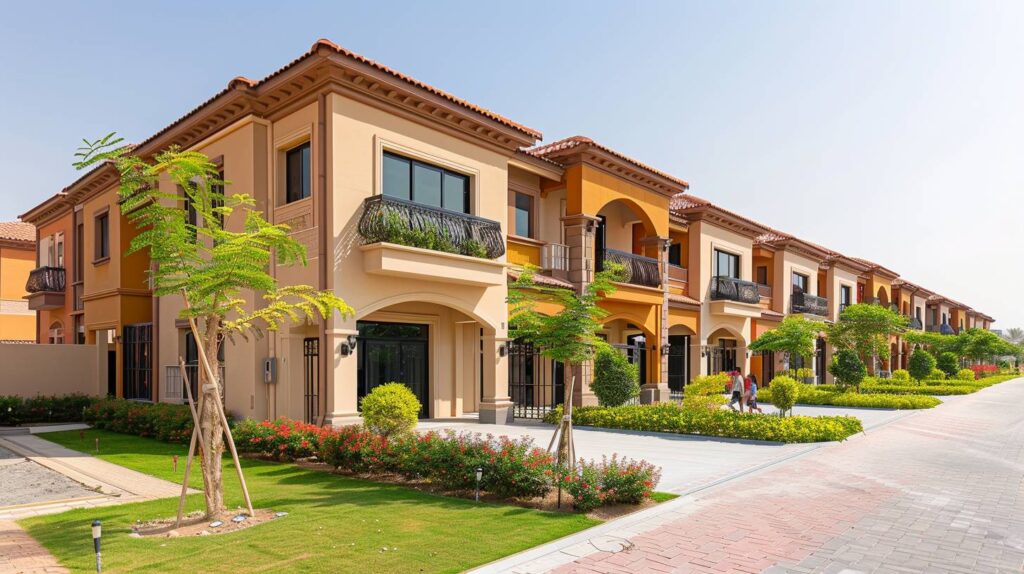
Thinking about investing in Dubai’s property market? You’re not alone—many investors are drawn to the city for its high rental yields, strong capital appreciation, and investor-friendly policies.
However, navigating the market can be challenging with so many factors to consider, from choosing the right location to understanding legal regulations.
As you take on this exciting investment opportunity, we’re here to guide you through the process. With our expertise, you’ll be equipped to make informed decisions and maximize your returns. In this article, we’ll cover:
- Top tips for choosing the right property
- Key strategies for maximizing your investment
- Legal and financial considerations
By the end, you’ll have a clear strategy for successfully investing in Dubai real estate, ensuring a profitable future!
1. Top Tips for Investing in Dubai Property: Maximize Your Returns
Dubai’s real estate market is diverse, offering opportunities across luxury, mid-range, and affordable property segments. Choosing the right property involves evaluating various factors, such as location, demand, and long-term growth potential.
Choosing the Right Location
Location is the most critical factor influencing property value and rental income. Some areas in Dubai have consistently high demand, while others are still developing but offer potential appreciation.
Prime Locations (High Demand & Strong ROI):
- Downtown Dubai – Ideal for high-end luxury apartments with strong appreciation.
- Dubai Marina – Popular among professionals and tourists; high rental demand.
- Palm Jumeirah – Ultra-luxury properties with waterfront living.
Emerging Areas (Affordable & High Growth Potential):
- Jumeirah Village Circle (JVC) – Affordable housing with 7-9% rental yields.
- Dubai South – Upcoming investment hotspot near Expo City and Al Maktoum Airport.
- Dubai Creek Harbour – Expected to be a future business and residential hub.
Off-Plan vs. Ready Properties: Which One to Choose?
Investors often face the decision of buying off-plan or ready properties. Each has its own advantages:
Off-Plan Properties:
- Lower entry prices and flexible payment plans.
- High potential for capital appreciation if bought early.
- Risk of delays or project cancellations—always verify the developer’s reputation.
Ready Properties:
- Immediate rental income with no waiting period.
- More predictable ROI and stable value.
- Higher initial investment compared to off-plan options.
Short-Term vs. Long-Term Rental Strategy
Dubai’s rental market is attractive, but you need to decide whether to rent long-term or offer short-term rentals (like Airbnb).
Short-Term Rentals: Best for areas with high tourist demand (e.g., Downtown, Dubai Marina). Offers higher monthly returns but requires property management.
Long-Term Rentals: More stable income, suitable for residential communities (e.g., JVC, Dubai Hills Estate). Lower maintenance costs compared to short-term stays.
See Also Is Dubai Property a Good Investment
2. Dubai Property Investment: Essential Tips for Success
Dubai’s property market offers high returns and strong growth potential, but successful investing requires careful planning and market knowledge. From understanding market cycles to choosing between freehold and leasehold properties, making informed decisions is key to maximizing your profits.
In this section, we’ll cover essential tips to help you navigate the Dubai real estate market with confidence.
Understanding Market Cycles
Dubai’s property market goes through up and down cycles based on supply and demand. Buying at the right time ensures higher appreciation and rental yields.
Buyer’s Market (Best Time to Invest) – Prices are low, and developers offer attractive deals. Ideal for securing properties at discounted rates.
Seller’s Market (Peak Prices & Demand) – Property prices rise, increasing the value of your investment. This is the best time to sell or rent out properties at higher rates.
Understanding Freehold vs. Leasehold Properties
Dubai offers both freehold and leasehold property ownership options.
- Freehold Properties – Foreigners can own full property rights in designated areas.
- Leasehold Properties – Ownership is for 99 years; common in areas like Dubai Silicon Oasis and Green Community.
Understanding Mortgage & Financing Options
If you’re not buying with full cash, consider financing options. Expats can get mortgages in Dubai, but they must meet certain criteria.
Mortgage Requirements for Expats:
- Minimum 20-25% down payment for property value under AED 5 million.
- Maximum loan tenure of 25 years.
- Mortgage rates vary between 3-5% per year.
If you’re investing in an off-plan project, developers offer flexible post-handover payment plans, reducing upfront costs.
3. Expert Tips for Investing in Dubai Real Estate
Understanding legal and regulatory requirements is crucial for protecting your investment.
Dubai Land Department (DLD) & RERA Regulations
- Dubai Land Department (DLD) – Oversees all real estate transactions in Dubai.
- Real Estate Regulatory Authority (RERA) – Ensures compliance with laws, protecting investors from fraud.
Key Legal Considerations Before Investing
- Check if the Developer is RERA-Registered – Avoid unapproved developers to prevent fraud risks.
- Verify Off-Plan Escrow Accounts – Developers must deposit investor funds in an escrow account to ensure project completion.
- Understand Investor Visa Benefits – Buying property worth AED 750,000+ makes you eligible for a 3-year investor visa; properties over AED 2 million+ qualify for the 10-year Golden Visa.
See Also Selling Property in Dubai
4. Dubai Property Investment: Key Strategies for Smart Investors
Smart investing in Dubai’s real estate market goes beyond just buying a property—it requires strategic planning, market research, and financial foresight. Whether you’re aiming for high rental yields or long-term appreciation, understanding ROI calculations, hidden costs, and risk management is essential.
In this section, we’ll explore key strategies to help you make informed decisions and maximize your investment potential.
Calculate ROI & Rental Yield Before Buying
Your investment should generate strong returns. Use this formula to calculate rental yield:
Rental Yield (%) = (Annual Rental Income / Property Price) × 100
High-Yield Areas in Dubai (Rental Yield %):
- JVC – 7-9% ROI
- Dubai Marina – 6-7% ROI
- Business Bay – 5-6% ROI
- Downtown Dubai – 5-6% ROI
Hidden Costs You Must Consider
Apart from the purchase price, investors must account for additional costs:
- DLD Registration Fee: 4% of the property value.
- Service Charges: AED 10-40 per sq. ft. (varies by area).
- Property Management Fees: If you’re renting out, expect 5-10% of annual rental income.
5. Maximize Your Investment: Tips for Buying Property in Dubai
To make the most of your Dubai property investment, it’s essential to work with trusted real estate professionals, negotiate smartly, and have a solid exit strategy.
- Work with RERA-Certified Agents – Always choose a licensed real estate agent who understands the market, provides valuable insights, and ensures a smooth transaction.
- Negotiate the Best Deal – Don’t settle for the asking price immediately. Developers and sellers often offer discounts, waived fees, or post-handover payment plans, which can significantly reduce your upfront costs.
- Plan Your Exit Strategy – A well-thought-out exit plan is key to maximizing returns:
- Hold for capital appreciation and sell at peak market value.
- Rent out long-term for stable passive income.
- Refinance your property to leverage equity for future investments.
By following these strategies, you can maximize profitability and minimize risks in Dubai’s dynamic property market.
Key Takeaways About Dubai Property Investment Tips
Investing in Dubai’s real estate market offers lucrative opportunities, but success depends on strategic decision-making. Choosing the right location—whether in high-demand areas like Downtown Dubai and Dubai Marina or emerging hotspots like JVC and Dubai South—can significantly impact your rental yield and capital appreciation.
Understanding market trends, freehold vs. leasehold ownership, and legal regulations ensures a smooth and secure investment. Additionally, evaluating financing options, hidden costs, and rental strategies will help you maximize profits while minimizing risks.
To stay ahead in Dubai’s dynamic property market, always work with RERA-certified agents, research off-plan vs. ready properties, and plan a solid exit strategy.
FAQ
What are the best areas in Dubai for property investment?
Popular areas for property investment in Dubai include Downtown Dubai, Dubai Marina, Palm Jumeirah, and Jumeirah Village Circle (JVC). These locations offer high rental yields, strong capital appreciation, and excellent amenities, catering to various budgets and investment goals.
Can foreigners buy property in Dubai?
Yes, foreigners can buy property in Dubai in designated freehold areas, granting full ownership rights. Popular freehold areas include Dubai Marina, Downtown Dubai, Arabian Ranches, and Business Bay. Freehold ownership allows foreign investors to benefit from Dubai’s lucrative real estate market without restrictions.



